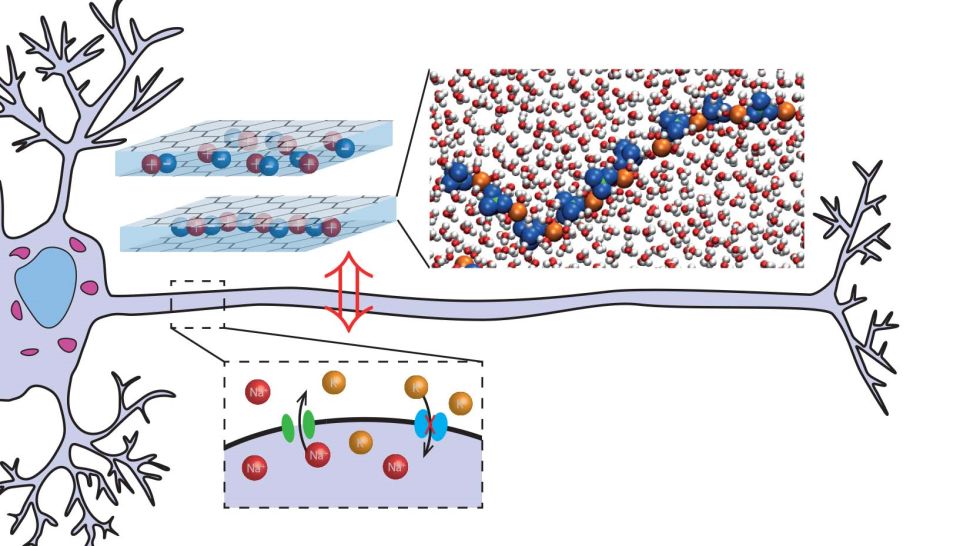There’s a lot about our brains we don’t understand, but one fact is for sure — our grey matter is very efficient. According to an article on the Live Science website, the human brain can run all day on just the energy in two bananas. Wouldn’t it be great if our computers were that efficient?
There just might be a way. According to a study published in the August 6, 2021 issue of the journal Science, researchers at the Centre national de la recherche scientifique in Paris, France created a computer model of artificial neurons that could produce the same kind of electrical signals used to transfer information in the brain. Basically, the brain uses charged particles called ions to produce its electrical signals. The French researchers were able to mimic real ion channels by sending ions through thin channels of water to produce the same type of electrical spikes. In other words, they created key parts of synthetic brain cells that can hold “memories.” Granted, this was for only milliseconds, but this could be the first step toward computers that work like the human brain, and use a lot less energy. “To my knowledge, it’s the first time that people [have done] this with ions,” said study co-author Lydéric Bocquet, a physicist at the École Normale Supérieure.

Since conducting this research with computer simulations, Bocquet says he and collaborators at the University of Manchester in the U.K. have created an artificial synapse, the part of a neuron that passes on electric signals, and they have started performing experiments with it.
Unfortunately, the details are beyond my limits of comprehension, so for a better explanation, see “Synthetic Brain Cells That Store ‘Memories’ Are Possible, New Model Reveals” by Rebecca Sohn (https://www.livescience.com/artificial-neurons-memories.html?).
